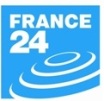Media Interventions
Our researchers intervene in the public debate and bring their light to the French and international media. Discover all their media interventions.

La Chine and the TPP
The speakers from the Annual Conference on the United States summarize their talks in short videos. Here, Françoise Nicolas considers what is at stake for Asia-Pacific countries, notably China, in the Trans-Pacific Partnership.
Législatives au Japon: une victoire pour les "abenomics"
Lancées début 2013 pour tirer l’Archipel de la déflation, les « Abenomics » sont d’ambitieux programme de relance du premier ministre, Shinzo Abe.
Invité: l’économiste Claude Meyer spécialiste de la zone Asie.
Partout la Chine
Dans 3D dimanche, partout la Chine, désormais 1ère puissance économique mondiale devant les Etats-Unis selon le FMI (Fonds Monétaire International). Or, l'Histoire démontre que pouvoir politique et militaire ont toujours dépendu de la puissance économique.
Économie mondiale : la Chine passe devant les États-Unis
Pour la première fois depuis 1872, les États-Unis ne sont plus, en 2014, la première puissance économique mondiale. La Chine les a dépassé et représente aujourd'hui 16,5 % de l'économie mondiale, en terme de pouvoir d'achat réel, devant les 16,3 % américains. Mais que signifient ces chiffres ? Induisent-ils la fin de près de deux siècles de suprématie économique américaine ? Surtout, ce rapport de force est-il parti pour durer ?

France Gives Russia 'Last Chance' to Negotiate With West
The weekend meeting between the French and Russian presidents has given France a chance to become "the new Germany" for Russia, which lost its last Western ally after a falling-out with official Berlin, analysts say.
French mediation "is aimed at preventing Russia-EU relations from going to the dogs," said Tatiana Kastueva-Jean of the French Institute of International Relations (IFRI) in Paris.

Oil Shock Streaks Across Globe form Moscow to Teheran to Caracas. Ready for $40?
Oil’s decline is proving to be the worst since the collapse of the financial system in 2008 and threatening to have the same global impact of falling prices three decades ago that led to the Mexican debt crisis and the end of the Soviet Union.

The United States: the Black Question
We all wanted to believe that Barack Obama's dazzling election in 2008 would accelerate history's forward trajectory in a good way for once. Barack Obama, would lead the United States into a post-racial era and serve as an example for all democracies. Six years later we see that we were wrong: the American president did not perform any of the expected miracles.
Last August in Missouri, a white police officer shot Michael Brown, a young African-American male. After courts found the officer not guilty, riots broke out in Ferguson and a number of large American cities. This anger demonstrates that 50 years after civil rights legislation race continues to deeply divide the United States. Are events in Ferguson emblematic of a larger problem? What impact will racial tensions have on American politics just two years from the next presidential election?
Support independent French research
Ifri, a foundation recognized as being of public utility, relies largely on private donors – companies and individuals – to guarantee its sustainability and intellectual independence. Through their funding, donors help maintain the Institute's position among the world's leading think tanks. By benefiting from an internationally recognized network and expertise, donors refine their understanding of geopolitical risk and its consequences on global politics and the economy. In 2024, Ifri will support more than 70 French and foreign companies and organizations.





















